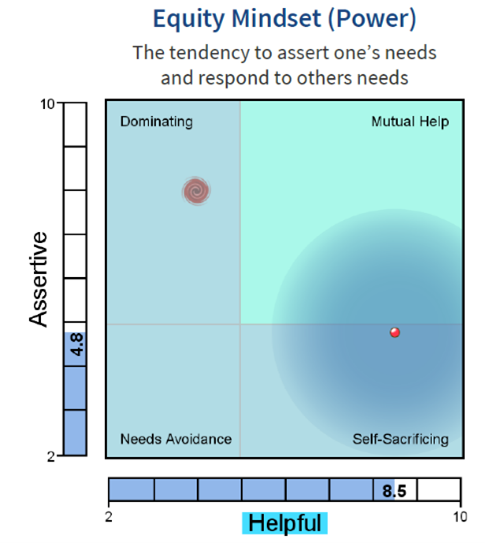The impact of preferences on behaviour
We all have traits (preferences and interests) that can help us in our endeavours, or which can potentially derail us. As a leadership coach I spend considerable time helping clients understand their strengths so they can utilise them to their advantage. Equally important is understanding that traits can potentially hinder us in our endeavours, especially as related to leadership.
At the Australian Coaching Collective (ACC), we have access to a variety of talent development resources which assist clients with greater self-awareness and ongoing growth. One such comprehensive instrument is known as ‘Harrison Assessments (HA).’ Essentially HA offers multiple talent management reports from one 20-minute questionnaire. They assist organisations in their acquisition, development, and retention of talent. More information can be found at
https://www.harrisonassessments.com/

One foundational theory that undergirds HA work is known as “Enjoyment Performance Theory”. As the name suggests, it supposes people will perform best when they are doing what they enjoy, most of the time. Not rocket science, right? Yet it’s an incredibly powerful principle when it comes to a person’s performance and our ability to engage and retain them. More on this in another article perhaps!
A second theory of HA is known as “Paradox Theory,” a term which may not be as intuitively understood. In essence, Paradox Theory supposes that having a strong trait (preference or interest) may be potentially unhelpful unless it is balanced by a complimentary paradoxical (or seemingly opposite) trait. A common example would be the paradox of ‘Tough Love”. In the context of raising well balanced children one needs both love and discipline to make it work. If parenting is low in discipline, they spoil the child. If one is low in empathetic love, they make their child fearful or bitter. HA has identified 12 sets of these paradoxical traits which have the potential to help or hinder us, particularly in leadership.
One of the paradoxes that my clients (especially in the not-for-profit (NFP) sector) often have out of balance is known as the “Equity Mindset” or “Power” paradox. It predominantly involves how we set relational boundaries. It looks at the relationship between responding to the needs of others, “Helpful”, and putting forward your own personal needs, “Assertive”. One of the greatest challenges of leadership is knowing how to use the level of power you have to ensure mutual needs are met. This is the key to enduring and positive relationships. I have observed that many NFP leaders tend to be highly motivated to respond to the needs of others, which is admirable. However, can you be too helpful? A better question may be “is my strong desire to be helpful adequately balanced with assertiveness so that it does not hinder me or others?

The adjacent graph shows an individual whose Helpful trait is much higher than their Assertive trait. You will note the shaded circle (normal range of behaviour) is predominately in the lower right quadrant, titled “self-sacrificing”. Some may wear this well as a badge of honour, but we find imbalances always result in unintended consequences (UCs). For this imbalance, UCs may include:
- encourage others to take advantage of us
- create unclear expectations
- encourage the neglect of responsibility
- hinder others’ growth through dependency
- result in insufficient organizational bench strength
- result in feeling unappreciated/burnout
Conversely, an imbalance the other way would result in “Dominating” behaviour. UCs in this instance may include:
- prevent mutually beneficial business
- hinder collaboration (inconsiderate)
- cause others to feel exploited
- create employee turnover
- create resentment and revenge
- result in the feeling of loneliness
Of course, the ideal behaviour to ensure this paradox is of help, is found in the upper right quadrant “Mutual Help”. The answer is not being less helpful or less assertive, but to work at developing the lower trait to ensure a more balanced range of behaviour is achieved. This may sound simple, but as traits are habitually learned preferences, they can prove difficult to shift. This is where the help of a coach can be beneficial.
So, can you be too helpful for your own good? Fear not! The answer is no. However, if you can’t utilise an equal degree of assertiveness to balance your helpfulness, it creates an unintended consequence of being too self-sacrificial, commonly leading to burnout. Perhaps we will explore more of these paradoxes in future articles. In the meantime, if you would like more information on Harrison Assessments, you can contact us for a free consult.



